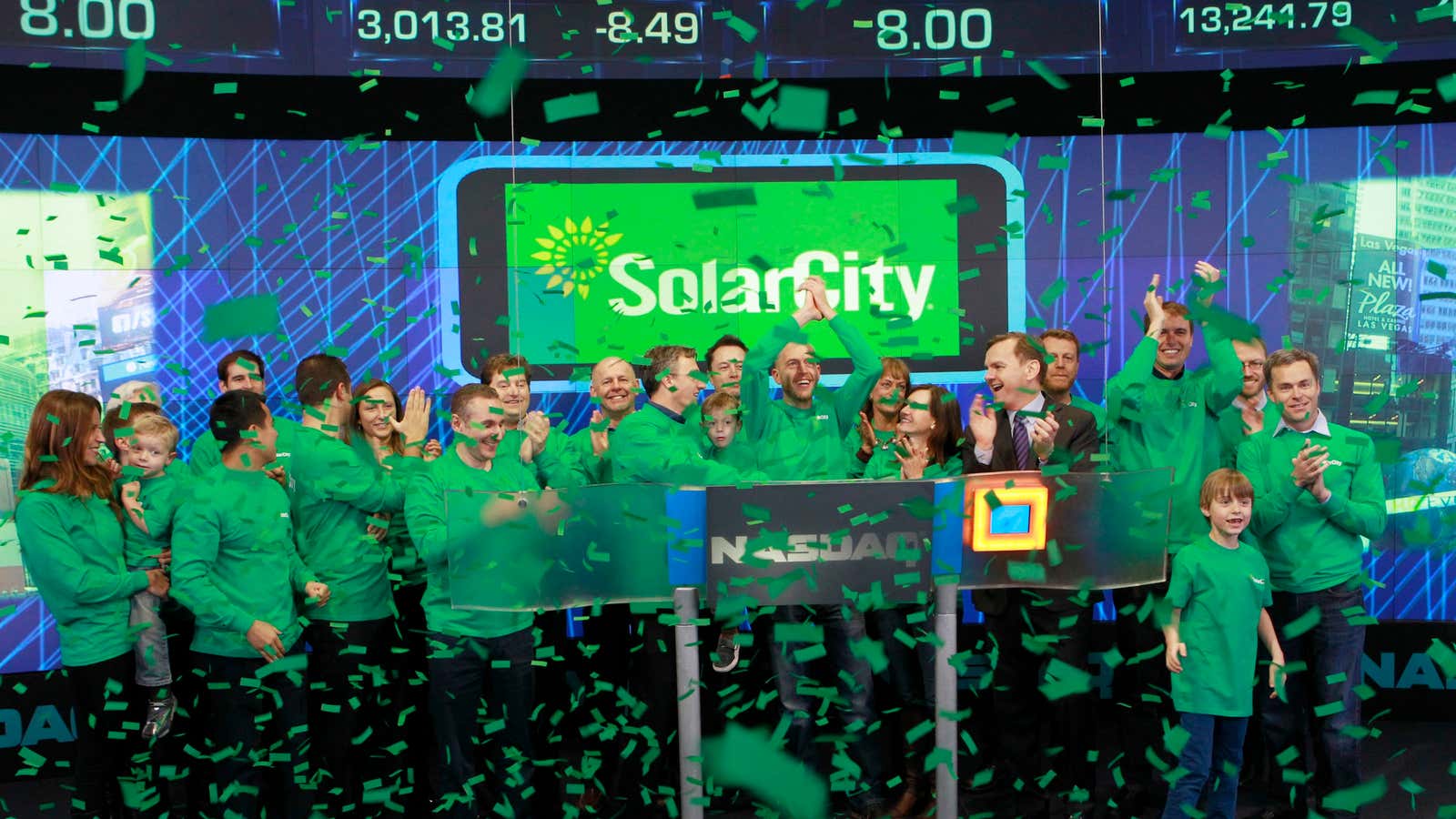Elon Musk’s electric car and rocket ship ventures may score the headlines—but SolarCity, his rooftop photovoltaic company, is proving the market leader of a booming business. The Silicon Valley firm today further consolidated its position as the US’s largest residential solar installer with the announcement that Goldman Sachs will finance $500 million in leases for SolarCity’s customers.
The fund will result in the installation of 110 megawatts (MW) of rooftop solar panels, or 44% of the 250 MW that SolarCity expects to install this year. Musk serves as chairman of SolarCity, which was founded by his cousins Lyndon Rive and Peter Rive, and holds more than a quarter of its shares.
About 90% of SolarCity’s customers opt to lease a rooftop photovoltaic array rather than fork over five-figure-sums to purchase solar panels. That means SolarCity’s business is dependent on raising tax equity funds to finance those leases. Financial heavy-hitters like Goldman, US Bancorp and Credit Suisse have created such funds because they get a 30% federal tax credit on every solar system leased. (And depending on how the fund is structured, they may also receive a steady flow of cash from homeowners’ lease payments.)
For Goldman, the fund represents a bet that so-called distributed photovoltaic power will trump big solar thermal power plants in the desert. (Back during the great solar gold rush of ’07, Goldman filed lease claims on 165,000 acres of federal land to build solar power plants in the desert southwest of the US.)
The Goldman cash pool is the largest such tax equity fund yet. SolarCity has now raised more than $2 billion to finance rooftop solar leases and the deal underscores the fact that the company is as much a financial play as a renewable energy company.
For instance, SolarCity is now moving to package its leases into asset-backed securities that it can take to the capital markets. “We have a pretty good portfolio, which we can talk to the [credit] agencies about,” SolarCity chief financial officer Robert Kelly said during the company’s May 13 first quarter earnings call. “I think you’ll hear some pretty good news over the next couple of months regarding tax equity aggregation and long-term financing.”
SolarCity’s customers tend to have top credit ratings but the company said it intends to use the Goldman fund to sign up those with less sterling scores. “The Goldman lease financing will make affordable solar electricity available to more types of homeowners and organizations,” Jimmy Chuang, SolarCity’s vice president of structured finance, said in a statement. “We expect to be able to expand our offering to a broader customer base by lowering the credit requirements even further in future financings.”
The company said the Goldman fund will also allow it to reel in more schools, municipalities and organizations that don’t carry credit ratings.
